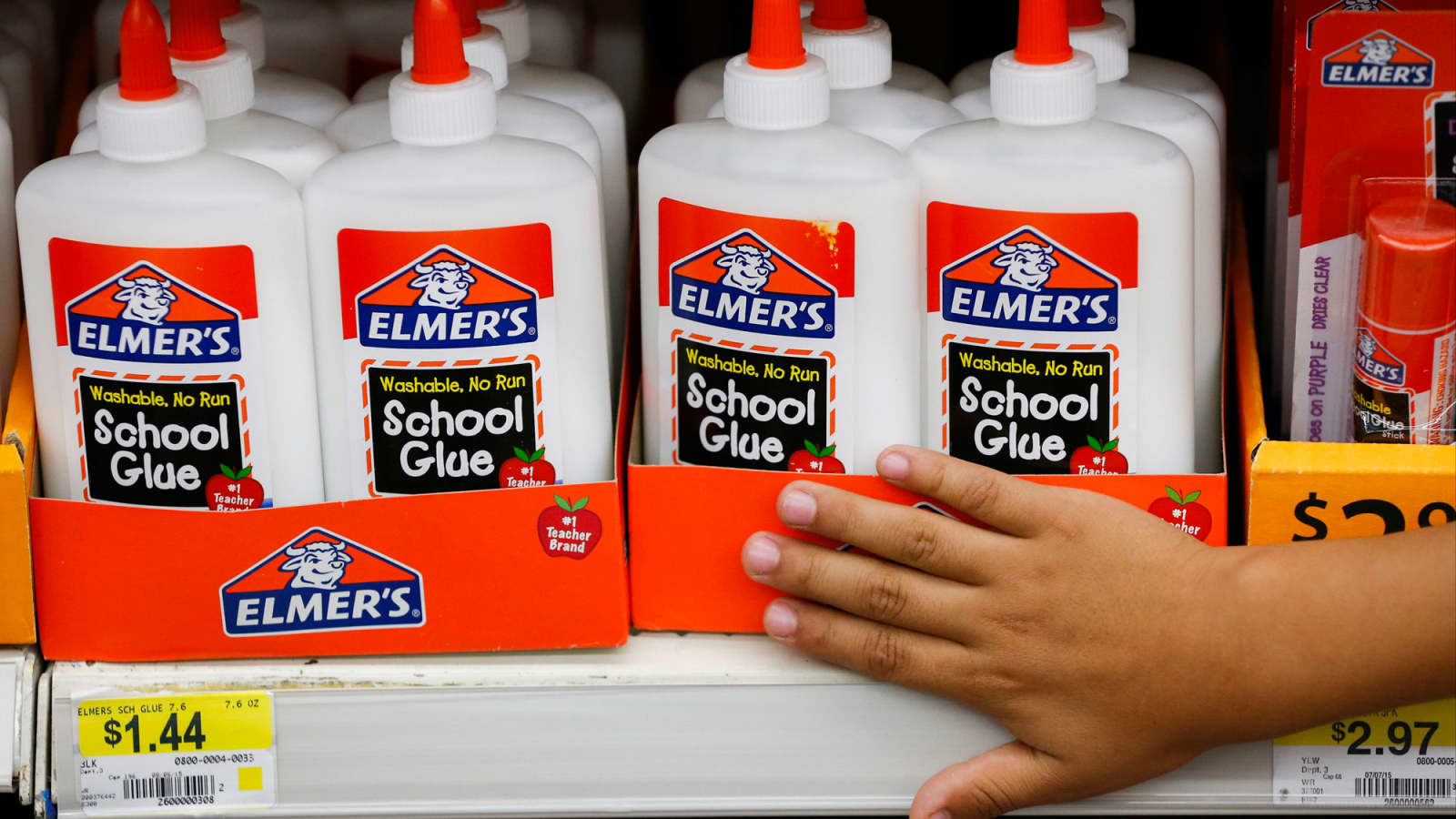
Concrete driveways are a popular choice among homeowners, offering a durable and functional vehicle parking solution and improving a property’s overall curb appeal. However, before diving headfirst into any concrete driveway project, it is crucial to be aware of certain key aspects, from installation to maintenance.
In this article, we will provide a comprehensive guide on the ins and outs of concrete driveways, outlining important factors that every homeowner should consider. Whether you are considering installing a new driveway or renovating an existing one, understanding these crucial elements will ensure that you make informed decisions and achieve optimal results.
Why Choose a Concrete Driveway?
One of the main advantages of a concrete driveway is its long-lasting nature. Concrete is a durable material that can withstand heavy vehicles and regular use without showing signs of wear and tear. Unlike asphalt driveways, which may require frequent repairs and resurfacing, concrete driveways are known for their longevity and low maintenance needs.
Additionally, concrete driveways can be designed to complement any home style. With stamping techniques, you can achieve various patterns and textures on the surface of the concrete, giving your driveway a unique and personalized look. Whether you prefer a classic paver-style design or a more modern and sleek finish, a wide range of options are available for concrete driveway design.
In terms of cost, concrete driveways can be a cost-effective option. While the initial installation cost may be higher than other driveway materials, such as asphalt, concrete driveways’ long-term durability and low maintenance needs make them a wise investment. On average, the cost to install a concrete driveway is around $6 to $15 per square foot, depending on factors such as the size of the driveway and the type of concrete used.
Pros of Concrete Driveways
- Durability
- Low Maintenance
- Curb Appeal
- Versatility
- Longevity
- Stain Resistance
- Weather Resistance
- Customization
- Property Value
- Environmental Benefits
- Reduced Dust and Debris
What Are the Potential Issues with Concrete Driveways?
One of the main downsides of concrete driveways is that they can be susceptible to cracking. Concrete is a rigid material, and when it expands and contracts due to temperature changes, it can develop cracks. However, with proper installation techniques and regular maintenance, the risk of cracking can be minimized.
Another factor to consider is that concrete driveways may not suit all climates. In areas with extreme freezing and thawing cycles, concrete can be prone to damage caused by the expansion and contraction of water as it freezes and thaws. In such cases, alternative driveway materials like asphalt may be better.
It’s also important to note that the appearance of concrete driveways can change over time. While plain gray concrete driveways are a common and cost-effective option, they may not be as visually appealing as other driveway materials, such as stamped or stained concrete. However, this personal preference should be considered when choosing a driveway material.
Cons of Concrete Driveways
- Initial Cost
- Cracking
- Maintenance
- Staining
- Drainage Issues
- Surface Wear and Tear
- Longer Installation Time
- Limited DIY Repair Options
- Limited Aesthetic Variety
- Cracking from Tree Roots
- Environmental Concerns
How Much Does a Concrete Driveway Cost?
The installation of concrete costs can vary depending on several factors, but it typically ranges from $6 to $15 per square foot, as mentioned above. This cost includes the materials, labor, and equipment to pour a concrete driveway.
The final price can be influenced by factors such as the driveway’s size, the concrete’s thickness, additional features like colored concrete, and local labor and material costs. A well-built concrete driveway typically lasts 30 to 40 years, making it a cost-effective option in the long run.
What Factors Should Be Considered When Getting a Concrete Driveway Installed in Varying Climate Conditions?

When installing concrete driveways in varying climate conditions, it’s essential to consider several factors to ensure the durability and longevity of the driveway. Different climate conditions, such as extreme cold, freezing temperatures, hot summers, or high humidity, can affect the performance of concrete.
Here are key factors to consider:
Climate Zone: Understand the specific climate zone in which your driveway will be located. Different regions may experience varying temperature extremes and moisture levels.
Concrete Mix Design: Select an appropriate concrete mix design tailored to the local climate conditions. For cold climates, consider using air-entrained concrete to improve freeze-thaw resistance.
Proper Thickness: Adjust the thickness of the concrete based on the climate. In cold climates, thicker concrete (e.g., 5-6 inches) is recommended to resist freeze-thaw cycles, while in warmer climates, a standard 4-inch thickness may suffice.
Reinforcement: Use reinforcement materials, such as rebar or wire mesh, to improve the concrete’s strength and resistance to temperature-induced cracking.
Control Joints: Install control joints at appropriate intervals to accommodate thermal expansion and contraction caused by temperature fluctuations. These joints help prevent unsightly cracks.
Curing: Pay close attention to curing practices, especially in extreme climates. Proper curing is crucial to protect the concrete from temperature-related stress and cracking.
Sealing: Apply a high-quality concrete sealer to protect the surface from moisture penetration, freeze-thaw damage, and the effects of de-icing chemicals. In colder climates, choose a sealer designed for use in freezing conditions.
Drainage: Ensure efficient drainage to prevent water from pooling on the driveway’s surface, which can lead to ice formation and deterioration in cold climates or erosion in rainy climates.
Heating Systems: Consider installing radiant heating systems beneath the driveway surface in extremely cold regions. These systems can help prevent snow and ice accumulation.
Snow and Ice Removal: Have a plan for snow and ice removal in colder climates. Avoid using harsh de-icing chemicals that can damage the concrete, and opt for snow plows or snow blowers instead.
Shade and Sun Exposure: Consider the impact of shading and sun exposure on your driveway. In areas with intense sunlight, choose lighter-colored concrete to reduce heat absorption.
Do I Need a Driveway Contractor for a New Concrete Driveway Installation?
Hiring a driveway contractor for a new concrete driveway installation is not just advisable; it’s a must to ensure a successful and long-lasting outcome. Concrete driveways involve specialized knowledge and skills in working with materials, equipment, and techniques only professional contractors possess. They understand the intricacies of concrete mixtures, curing processes, and proper finishing methods, all essential for creating a durable and functional driveway.
Additionally, contractors are well-versed in local building codes and regulations, ensuring the project complies with necessary permits and standards. With access to the right equipment, they can efficiently complete the installation while offering quality assurance and warranties, guaranteeing that your investment is protected.
Attempting a DIY concrete driveway installation may seem like a cost-saving measure, but it often leads to costly mistakes and a shorter lifespan for your driveway. Therefore, hiring a concrete contractor is prudent to ensure your new concrete driveway looks great and lasts for many years.
Choosing the Best Concrete Driveway

When choosing the best concrete driveway, a few factors must be considered. Firstly, the size of the driveway will play a role in determining the cost. Larger driveways will naturally require more materials and labor, costing more. The type of concrete used is another important consideration. Different types of concrete are available, each with its own strengths and weaknesses. It’s advisable to consult with a driveway contractor who can advise on the best type of concrete for your specific needs.
Additionally, it’s also worth considering the overall design of your driveway. Whether you prefer a simple and plain concrete driveway or a more decorative stamped or stained finish, the design should complement the aesthetic of your home. Lastly, if you have an existing driveway that needs to be replaced, it’s important to factor in the cost of removing the old driveway. This can add to the overall cost of installing a new concrete driveway.
What are Alternatives to Concrete Driveways?
Homeowners may consider several alternatives to concrete driveways when installing or renovating them. These alternatives offer various benefits and aesthetic options, catering to different preferences and requirements. Here are some common alternatives to concrete driveways:
Asphalt Driveways: Asphalt driveways are popular due to their durability and cost-effectiveness. They provide a smooth surface and are relatively easy to install and maintain. Asphalt driveways also have the advantage of being resistant to cracking in freeze-thaw cycles.
Gravel Driveways: Gravel driveways are cost-effective and can offer a rustic, natural appearance. They require periodic maintenance to replenish the gravel and maintain a smooth driving surface. Gravel driveways allow for excellent drainage, reducing the risk of puddles and flooding.
Paver Driveways: Paver driveways are constructed using interlocking concrete or stone pavers. They offer many design options and can create intricate patterns and designs. Paver driveways are known for their aesthetic appeal and can be easily repaired by replacing individual pavers.
Brick Driveways: Brick driveways provide a classic and timeless look. They are durable and can withstand heavy loads, making them suitable for driveways. Maintenance may involve occasional resealing or re-leveling of the bricks.
Cobblestone Driveways: Cobblestone driveways are similar to brick driveways but offer a distinct, textured surface. They exude a charming, old-world charm and are exceptionally durable. However, they may require frequent maintenance to keep the surface even and weeds-free.
Permeable Driveways: Permeable driveways are designed to allow water to pass through the surface, which can help manage stormwater runoff and reduce flooding. They are often made of permeable pavers or materials like crushed stone.
Green Driveways: Green driveways incorporate vegetation into the driveway surface, typically using grass or ground cover plants. They provide an eco-friendly option that promotes natural drainage and can improve the property’s aesthetic appeal.
Recycled Materials: Some homeowners opt for driveways made from recycled materials, such as reclaimed asphalt or recycled concrete. These options are environmentally friendly and can have a unique appearance.
Stamped Concrete: While still concrete, stamped concrete driveways offer a decorative alternative. Patterns and textures are stamped onto the concrete surface, mimicking the look of pavers, stones, or other materials.
Resin-Bound Driveways: These driveways consist of aggregates bound together with a clear resin, creating a smooth, decorative surface. They are available in various colors and can be customized to match the property’s aesthetic.
Maintenance Tips for a Newly Installed Concrete Driveway
- Clean the driveway regularly by sweeping away any debris and dirt. This will help prevent premature wear and tear on the surface.
- Keep the driveway free of standing water by ensuring proper drainage. This will prevent water from seeping into the concrete and causing cracks or damage.
- Avoid harsh chemicals or de-icing agents on the driveway, as they can deteriorate the concrete surface.
- Repair any cracks or damage as soon as possible to prevent further deterioration. Use a concrete patching compound and follow the manufacturer’s instructions for the best results.
- Avoid using sharp objects or heavy equipment on the driveway, as they can cause damage to the concrete.
- Apply a sealant to the concrete every few years to protect it from stains, moisture, and other environmental factors.
- Avoid parking heavy vehicles on the same spot for extended periods, which can cause the concrete to sink or crack. Use parking mats or other protective measures if necessary.
- If you live in an area with extreme weather conditions, such as freezing or high heat, take extra precautions to protect your concrete driveway. This may include using winter-safe de-icers or providing shade during hot summer days.
- Regularly inspect the driveway for any signs of damage or wear and address them promptly. This will help prolong the lifespan and appearance of your concrete driveway.
Frequently Asked Questions About Concrete Driveway
Q: What is a concrete driveway?
A: A concrete driveway is a paved surface that provides a durable and long-lasting solution for vehicle access to your property. It is made by pouring a mixture of cement, sand, gravel, and water onto a prepared surface, allowing it to harden and create a solid, smooth, and finished driveway.
Q: What are the different types of concrete driveways?
A: There are several types of concrete driveways available, including standard concrete driveways, stamped concrete driveways, and paver driveways. Standard concrete driveways are the most common and affordable type, while stamped concrete driveways offer decorative patterns and designs. Paver driveways use interlocking concrete pavers to create a more versatile and customizable look.
Q: What type of concrete is used for concrete patios?
A: The type of concrete typically used for patios is known as “ready-mix concrete.” Ready-mix concrete is a versatile and readily available concrete mixture that is mixed at a batching plant and then delivered to the construction site. It is favored for patio applications because it offers consistent quality and strength. This type of concrete can be customized to meet specific project requirements, such as decorative finishes, color options, and varying levels of durability.
Q: What is the national average cost of a concrete driveway?
A: The cost of a concrete driveway can vary depending on various factors, such as the size of the driveway, the type of concrete used, and any additional features or customization. On average, you can expect to pay around 6 per square foot or up to 15 per square foot (in USD). However, getting a detailed estimate from a contractor for an accurate cost assessment is recommended.
Q: How long do concrete driveways last?
A: Properly installed concrete driveways can last for several decades. With regular maintenance and occasional sealing, concrete driveways last 30 to 40 years or even longer, withstanding heavy vehicle traffic and extreme weather conditions while remaining in good condition.
Q: Can I replace my old concrete driveway?
A: Yes, it is possible to replace an old concrete driveway. However, it is essential to consult with a professional contractor to assess the condition of your current driveway and determine the best course of action. Replacing a concrete driveway involves removing the existing concrete, preparing the base, and pouring new concrete to create a fresh and updated driveway.
Q. What is the role of concrete pavers in landscaping and outdoor design?
A. Concrete pavers are versatile, interlocking units that can create various outdoor features, including patios, walkways, driveways, and retaining walls. Concrete pavers are also known for their durability and ease of maintenance. Their ability to withstand temperature fluctuations and their slip-resistant properties make them popular for functional and aesthetic landscaping projects.
Q. What are the benefits of using stamped concrete for patios and walkways?
A. Stamped concrete is a highly advantageous choice for creating patios and walkways in your outdoor space. One of its primary benefits is cost-effectiveness. Stamped concrete allows you to achieve the appearance of premium materials like stone, brick, or wood, yet it typically costs less to install. This cost-effectiveness makes it attractive for those seeking a great driveway without breaking the bank.
Q: Should I seal my concrete driveway?
A: Yes, you can seal a driveway to protect it from staining, moisture penetration, and deterioration caused by freeze-thaw cycles. The sealer creates a protective barrier on the surface and helps maintain its appearance and strength over time. Resolving the driveway every few years is advisable to maintain its optimal performance.
Q: Can I install a concrete driveway myself?
A: While installing a concrete driveway yourself is possible, it is a complex and labor-intensive process that requires experience and specialized tools. Hiring a professional concrete contractor with the expertise and equipment to ensure a proper installation and durable driveway is generally recommended.
Q: How do I find concrete for my driveway?
A: To find concrete for your driveway, you can contact local suppliers or search online directories for concrete suppliers in your area. Specifying the type and quantity of concrete you need for your driveway project is important. The supplier can then provide you with the necessary information regarding price, delivery options, and any other requirements.
Conclusion
In conclusion, understanding the ins and outs of concrete driveways is essential when building a new driveway or upgrading an existing one. Concrete driveways, made of concrete slabs, are a popular choice due to their durability and longevity. It’s important to ensure that working with wet concrete during construction is essential to achieve a smooth and solid surface that will withstand the test of time.
However, it’s essential to recognize that concrete driveways don’t come without their considerations. Regular maintenance may be necessary to address cracks or discoloration that can develop over time. But despite this, concrete driveways are still relatively cost-effective compared to other driveway paving options like asphalt or pavers, making them an attractive choice for homeowners looking for a long-lasting driveway solution.
For more compelling articles like this, subscribe to our community at the Family Hint today!



